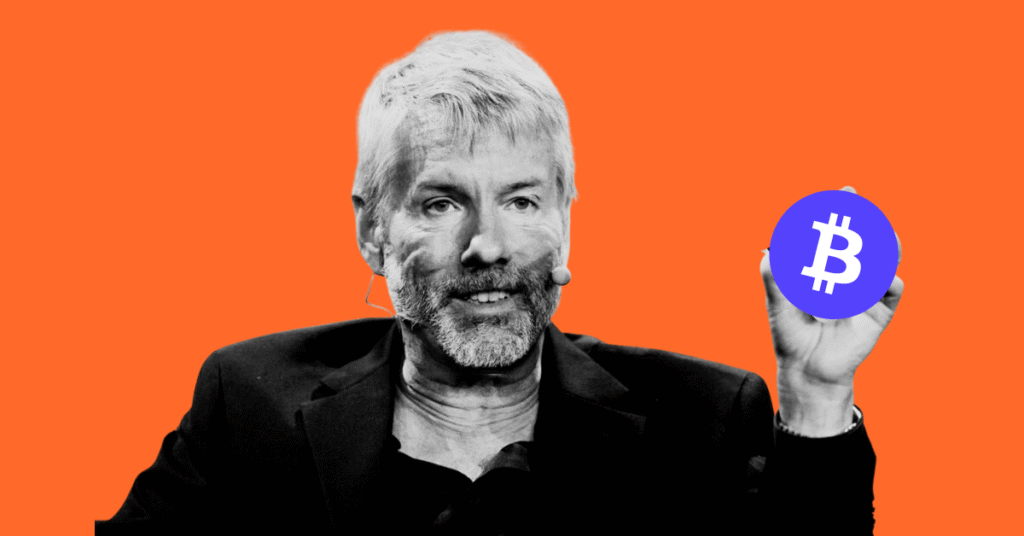In the fast-evolving world of cryptocurrency, staying informed is key to making strategic investment decisions. With prominent figures like Michael Saylor actively shaping the narrative, it’s essential for investors to grasp the dynamics that could influence Bitcoin’s future. Saylor’s steadfast belief in Bitcoin, despite the shifting stances of traditional financial institutions, underscores the potential of digital assets. Here, we delve into why Saylor’s confidence in Bitcoin remains unwavering and how it might reshape the financial landscape.
Michael Saylor’s Unyielding Confidence in Bitcoin
Michael Saylor, Executive Chairman of Strategy, formerly known as MicroStrategy, maintains a bold stance on Bitcoin despite skepticism from traditional finance powerhouses like JPMorgan and notable investors like Warren Buffett. During a conversation on Bloomberg Crypto, Saylor emphasized his view that Bitcoin is still at an early stage in its valuation journey, a sentiment he echoed with confidence.
The Bullish Bet on Bitcoin
Saylor asserts that Strategy’s commitment to Bitcoin sets it apart, as the company continues to invest heavily in the cryptocurrency. While Bitcoin currently trades at approximately $107,918, Saylor suggests that major institutions may only seriously pivot towards Bitcoin when it hits the $1 million mark. This conjecture is supported by recent moves from JPMorgan, which plans to allow select clients to use Bitcoin ETFs as collateral, highlighting a gradual shift in traditional finance towards cryptocurrency adoption.
The Future of Bitcoin: No More Bear Markets?
Saylor boldly claims that Bitcoin will not experience bear markets in the future. This perspective is rooted in Strategy’s ongoing investment strategy and the anticipated demand surge. For Strategy, Bitcoin is not merely an asset but the cornerstone of its business strategy. This reliance, Saylor argues, provides a strategic advantage, enabling the company to offer preferred stock with enhanced liquidity and returns.
JPMorgan’s Entry: A Boon for Bitcoin?
While Saylor downplays competition, he acknowledges that JPMorgan’s entry into the cryptocurrency market could bolster Bitcoin’s price, benefiting current holders. He predicts that Bitcoin might reach astronomical prices, suggesting a valuation of $1 million or possibly $10 million before mainstream financial advisors fully endorse it.
Encouraging Tech Giants to Embrace Bitcoin
Saylor has also been vocal in urging technology leaders such as Apple and Microsoft to adopt Bitcoin. His ambitions extend beyond corporate interests, advocating for a broader recognition of Bitcoin’s value. He critiques skeptics like Jamie Dimon, CEO of JPMorgan, and Warren Buffett, attributing their hesitation to a lack of understanding of Bitcoin’s potential.
### Editorial Excellence and Integrity
Our editorial team at [Bitcoinist](https://bitcoinist.com) is dedicated to providing thoroughly researched and unbiased content reviewed by top industry experts and seasoned editors. This rigorous process ensures our readers receive accurate, relevant, and valuable information.
### FAQs
Is Bitcoin a wise investment during volatile market conditions?
The decision to invest in Bitcoin depends on various factors, including market trends, individual risk tolerance, and financial goals. While Bitcoin offers high growth potential, it also comes with significant volatility, necessitating careful consideration and strategic planning.
How does Strategy’s Bitcoin investment strategy differ from other companies?
Strategy’s approach is characterized by its unwavering commitment to Bitcoin as the core of its business strategy, unlike other firms that may only consider Bitcoin as a fractional part of their portfolio. This distinct focus is designed to leverage the anticipated long-term growth of Bitcoin.
What impact does institutional interest have on Bitcoin’s future?
Institutional interest, such as moves by JPMorgan, signals a growing acceptance of Bitcoin in mainstream finance, which can drive increased investment and adoption, potentially stabilizing the market and fostering a more robust valuation environment over time.

